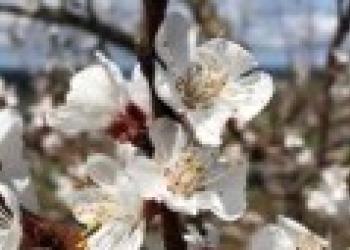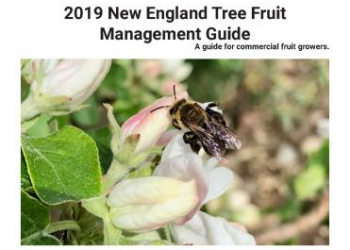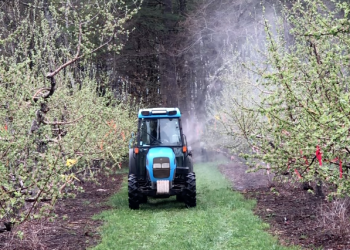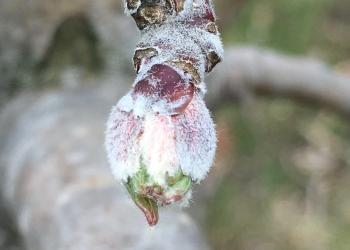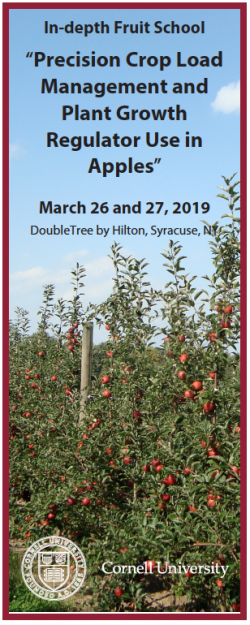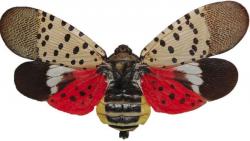Fruit Program News
-
NEWA announces partnership with Onset Corporation
May 3, 2019 -
New version of Carbohydrate model and new phone app of 3 models
May 1, 2019 -
Current Bud Stages at UMass Orchard
April 29, 2019Once again current tree fruit bud stages at the UMass Orchard in Belchertown, MA, including pictures, are available on the UMass Fruit Advisor website: http://ag.umass.edu/fruit/resources/bud-stages-photos Every year since 2012, a history of current bud stages are also available. In addition, bud stages back to 2001 are archived in Clements Corner on the old UMass Fruit Advisor website here: http://fruitadvisor.info/tfruit/clements/index.html
-
New England Tree Fruit Management Guide
April 29, 2019The New England Tree Fruit Management Guide, a collaborative publication of tree fruit Extension specialists in each New England state, is available on-line or in print. For New England commercial orchardists, the on-line version at http://netreefruit.org is updated continuously and represents the latest tree fruit production and crop protectant information. It is both desktop and mobile device friendly, and can be a quick handy reference in the field on your smart phone. Individual chapters/sections can also be easily printed for quick reference in the office, spray shed, or for workers. This should be your first go-to for current orchard -- including apple, pear, peach, cherry, and plum -- production and spray schedule information.
-
Decision Support Systems for Massachusetts Apple Growers (and Beyond)
April 1, 2019 -
Predicting green tip?
April 1, 2019 -
In-Depth Fruit School - Precision Crop Load Management and PGR Use in Apples
March 6, 2019“Precision Crop Load Management and Plant Growth Regulator Use in Apples” An In-depth School for Fruit Growers March 26 and 27, 2019. The Cornell Fruit Team is pleased to announce an in-depth school for tree fruit growers, extension educators and crop consultants on March 26 and 27, 2019, at the DoubleTree by Hilton in Syracuse, NY. This meeting will be a two-day intensive school focusing on precision crop load management and the applications of plant growth regulators in the orchard. In addition to Cornell speakers, the meeting will feature invited scientists from Washington State University, Pennsylvania State University, and Michigan State University. Industry representatives from MOOG, Valent BioSciences, and AgroFresh will participate on March 26 and 27. The meeting attendance will be limited to 150 people so we urge to register early before the space is filled up. The meeting is being advertised to members of the fruit production industries in the eastern US.The in-depth school will serve as a vehicle for fruit industry leaders to learn of advances in precision orchard management and to catch a vision of the future use of computer vision and robotics to manage crop load precisely. It will also allow growers to give input to this vision. Details and registration information are available at the site: http://cals.cornell.edu/indepthschool2019 For more information call Gemma Osborne at 315-787-2248, or email at gro2@cornell.edu.
-
Spotted Lanternfly Alert
February 22, 2019 -
2019 Mass Aggie Seminars Scheduled
January 27, 2019Mass Aggie is for You
Each year the UMass Stockbridge School of Agriculture and the UMass Extension offer one or more workshop series on topics of general interest to homeowners and small scale farmers. In the past workshops have been offered in fruit tree grafting, pruning, wildflower identification, and cider making. All workshops have a hands-on component that will help participants gain new skills that they can use in their own gardens or landscapes.
See the link(s) below for the latest offerings:
Click here for the Mass Aggie Seminar Spring 2019 schedule
-
Produce Safety Alliance Grower Training Series 2019
January 27, 2019Wondering where to begin with food safety? Start here! The PSA Grower Training is currently the only official FDA-recognized produce safety training to help growers implement Good Agricultural Practices (GAPs) and understand their responsibilities under new Federal regulations. Whether you have a farm that is fully covered by the law or a small, exempt farm and you’re just looking for information, this training is for you.
The PSA Grower Training Course satisfies the FSMA Produce Safety Rule requirement outlined in § 112.22(c) that requires ‘At least one supervisor or responsible party for your farm must have successfully completed food safety training at least equivalent to that received under standardized curriculum recognized as adequate by the Food and Drug Administration.’ The training is also required for participation in Massachusetts’ Commonwealth Quality Program.
 Produce Safety Alliance Grower Training Series 2019
Produce Safety Alliance Grower Training Series 2019Each program can also be accessed from the UMass website:
- Plymouth: https://ag.umass.edu/
vegetable/events/produce- safety-alliance-grower- training-plymouth-ma - Holyoke: https://ag.umass.edu/
vegetable/events/produce- safety-alliance-grower- training-holyoke-ma - Westborough: https://ag.umass.edu/
vegetable/events/produce- safety-alliance-grower- training-westborough-ma - Beverly: https://ag.umass.edu/
vegetable/events/produce- safety-alliance-grower- training-beverly - Stockbridge: https://ag.umass.edu/
vegetable/events/produce- safety-alliance-grower- training-stockbridge-ma
- Plymouth: https://ag.umass.edu/


